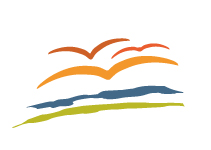The Democratic Change in the Arab Region: State Policy and the Dynamics of Civil Society (2011)
On April 2-3, 2011, the Foundation convened a discussion seminar entitled the Democratic Change in the Arab Region: State Policy and the Dynamics of Civil Society.
The seminar brought together more than 60 actors enjoying a high status and playing an important role in the Arab region, including those who have made gains on the ground in the struggle for rights and freedoms, and who seek to innovate with regard to the goals and forms of these interventions.
The seminar was one of the first of its kind to be organized in the wake of the momentous uprisings in the Middle East and North Africa. It provided the space for a preliminary exchange and reflection between key academics, civil society actors, donors and government representatives who work in or on the region, and who, particularly, are involved in the promotion of democracy and protection of human rights. The discussions focused on four major axes: the logics of local state actors, of international actors, of civil society and non governmental actors, and of the donor community.
Thanks to its numerous angles of analysis and viewpoints, the report provides a strong base upon which to build policies and strategies to promote and protect democracy and human rights, and is highly relevant to all those involved in the Middle East and North Africa, whether as donors, government representatives, academics or civil society actors.
Read the report: Democratic Change in the Arab Region: State Policy and the Dynamics of Civil Society
Analysis of Developments in the Arab Region (2013)
The Foundation organized a day of reflection in May 2013 with the aim of better understanding and analyzing the developments of the Arab region in order to respond to the changing needs of defenders. On this occasion, two colleagues and prominent researchers presented their contributions, analysing the historical, legal, and socio-political dimensions of the changes induced by the 2010-2011 “Arab Uprisings”.
- “Arab Revolutions” facing the challenges of democratic cohabitation, by Mohamed Sghir Janjar
Mohamed Sghir Janjar holds a Doctorate in Anthropology and works as Deputy Directorof the King Abdul-Aziz Al Saoud Foundation for Islamic Studies and Human Sciences in Casablanca. As a sociologist, he is also the author of many studies related to the Arab Islamic thoughts. He is the editor of the magazine Prologues in Casablanca, a book magazine in Maghreb, the religion collection and the Société des éditions Prologues, and co-edits Le Fennec´s philosophical debates collection. He published several papers and has contributed to collectives work, among which an essay on the formation of the Muslim Mysticism.
- Human Rights after the Arab Uprisings, by Eberhard Kienle
Eberhard Kienle works as Director of Research at the National Centre for Scientific Research and also teaches political sciences at the Institute of Political Studies in Grenoble and Paris. Specializing in the international relations, political sociology and political economy of the contemporary Middle East he takes a particular interest in the historical and comparative dimensions of developments in this region. He previously taught at the universities of Oxford (St. Antony’s College) and London (School of Oriental and African Studies, SOAS). As Chair of the Centre of Near and Middle Eastern Studies (CNMES) at SOAS he was among the founders of the new London Middle East Institute (LMEI). Over the years, he has acted as an advisor to various government agencies, international bodies, non-governmental organizations and companies.

